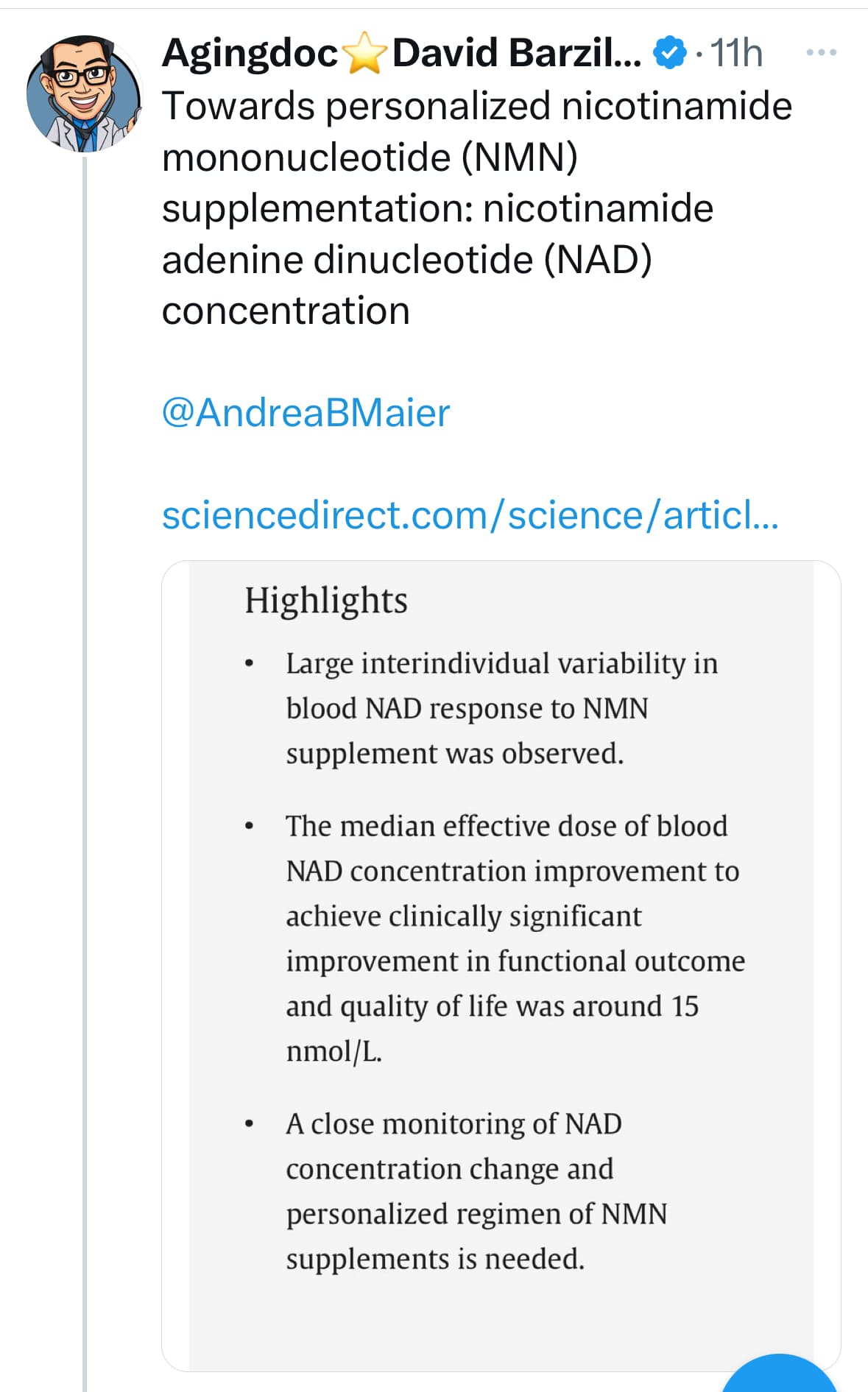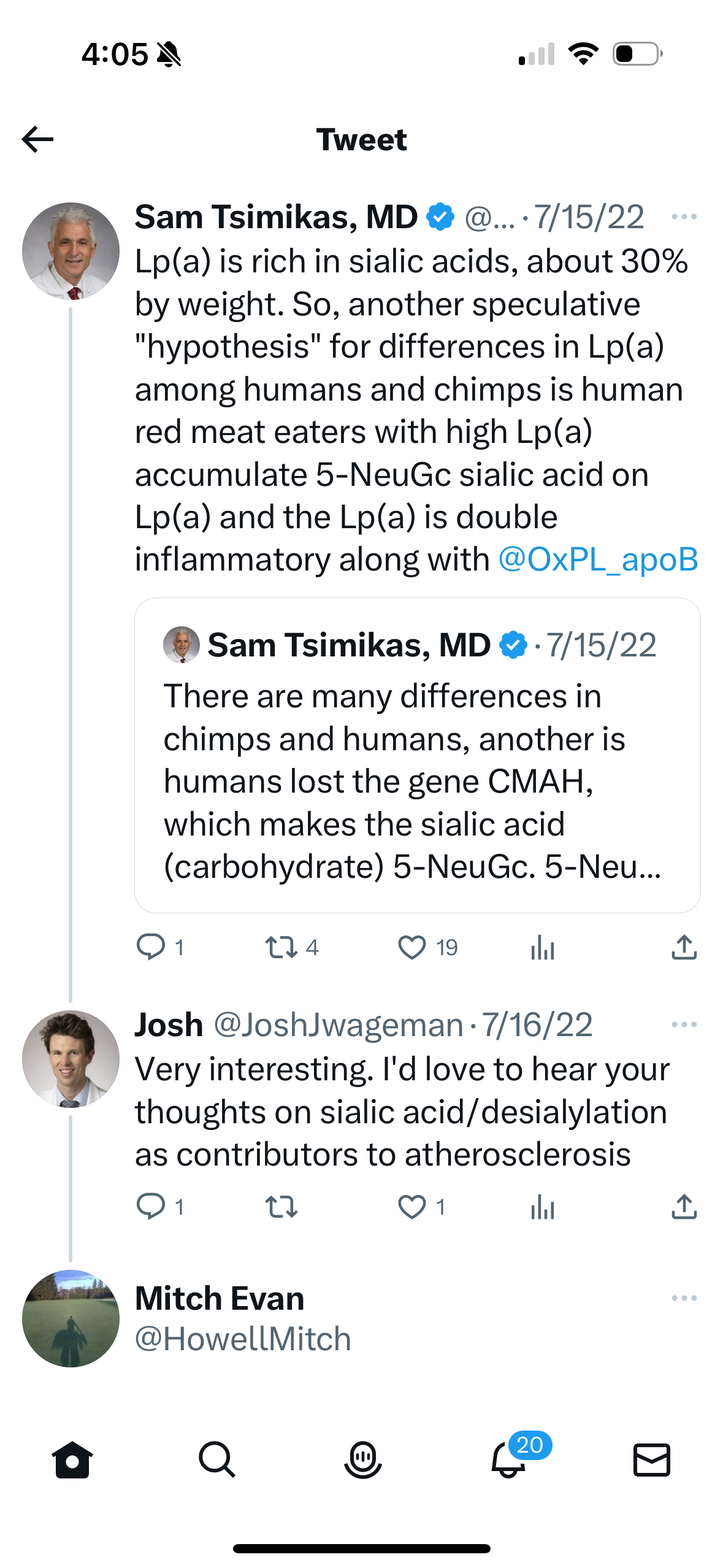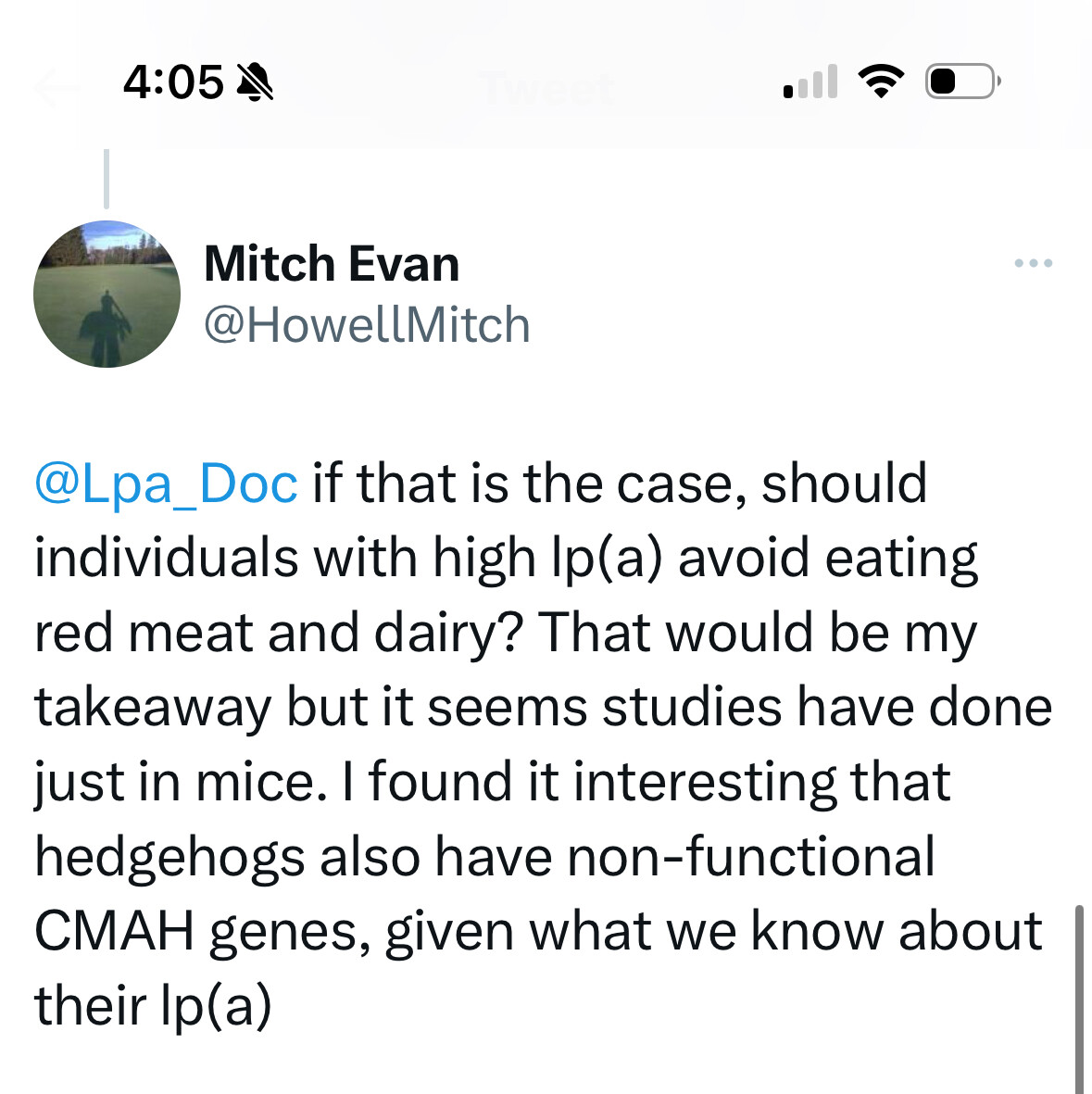Please do give us an update about what you learn from Dr Sam T
Meeting today. Will let you know.
![]()
![]() (extra characters)
(extra characters)
How was the conversation? What did you learn?
Email from Brad Stanfield:
Vitamin B3 (Niacin) Linked To Heart Disease
Sat 2024-03-02 7:00 AM
Recent research published in Nature Medicine has highlighted a potential link between high doses of Vitamin B3 (Niacin) and increased risks of heart disease due to blood vessel inflammation.
This revelation has sparked widespread concern across social media platforms. I’m here to provide a balanced perspective on these findings and what they might mean for us.
First and foremost, it’s crucial to understand that this study initiates a hypothesis—it’s the beginning of a conversation, not a conclusive verdict.
While the link between high-dose Vitamin B3 and heart disease warrants attention, it underscores the importance of cautious supplement use, urging us to stay informed and vigilant.
Vitamin B3, in its various forms—NMN, NR, nicotinamide, and niacin—is popular for its potential to boost NAD levels, a cornerstone molecule in our metabolism believed to enhance disease resilience.
However, this new study poses critical questions about the safety of high-dose Vitamin B3, previously used in attempts to lower LDL cholesterol and reduce heart disease risk.
Unfortunately, past studies like AIM-HIGH and HPS2-THRIVE didn’t find benefits but raised concerns over an increase in diabetes, infections, and bleeding. A 2018 meta-analysis further linked high-dose Vitamin B3 to a 10% increase in all-cause mortality.
This brings us to a pivotal inquiry: do all Vitamin B3 variants pose the same risk, or are these adverse effects specific to niacin?
Research in mice suggests that NMN and NR, popular in the longevity community, are converted to niacin by the gut microbiome before being absorbed. This conversion could imply similar long-term health risks, although human studies are yet to confirm this.
The recent study focused on how excess Vitamin B3 contributes to cardiovascular disease risk, identifying a metabolite, 4PY, linked to heart disease.
While 4PY levels also rise with NR and NMN use, we must remember that observational studies can only show associations, not causations. More in-depth research is necessary to ascertain the long-term effects of elevated 4PY levels.
So, what does this mean for our approach to Vitamin B3 supplementation?
Personally, I include 50mg of nicotinamide in MicroVitamin, which is over three times the recommended daily allowance (RDA).
[MicroVitamin: A Low-Dose MultiVitamin & Mineral – Dr Brad Stanfield]
Despite the study’s implications, I believe in the benefits of supporting NAD+ levels and plan to maintain this dosage in the upcoming formula version 4.
I do, however, caution against the allure of mega-dosing Vitamin B3, given the potential risks highlighted.
As always, the decision to use supplements should be informed and personalized. I encourage you to stay updated on the latest research and consider your health and wellness with care.
To Your Health,
Brad
For reference Niacin dosing for lowering LDL was between 1000 - 6000 mg per day. Stanfield’s MicroVitamin dose is 50 mg per day.
Thanks Joseph. My guesstimate is currently that Niacin might be better for Apo B/LDL lowering than not doing anything, but for anyone without high Lp(a) there are so many other better/less risky Apo B lowering meds.
For people with high Lp(a) - especially if they respond in big Lp(a) lowering way to Niacin - the risk/reward might be worth it (until the Lp(a) lowering meds in late stage trials hopefully come online in a few years). But would love to hear any more experts’ views on this (incl Dr Sam T).
For NAD+ it might be worth it, but I’d not super dose and would def measure NAD+ levels to see (a) if needed and (b) so that the B3 (what we form not must Niacin but also NR or NMN) can be minimizes for the NAD+ effect one wants to target.
Don’t understand the mechanisms here (yet), but may be worth looking into.
Does anyone know if this is unique to red meat or would it also potentially apply to fish?
Here is my update from meeting with Dr. Sam T. In short, I was impressed with the meeting. He met with me for one hour and 15 minutes. That is amazing to me given his time and expertise. We talked mainly about the quandary I’m facing regarding Niacin given Niacin lowered my LPa significantly. He was not overly concerned with the potential negative issues related to Niacin supplementation given many of his patients are on Niacin to lower Lpa and early studies examining the benefits of mono niacin therapy (without a statin) showed benefits. In my case, however, he feels that given I had several DVT’s in life that a PCSK9i could be better for me given it could lower LPa as well as reduce potential future DVT’s given the research shows that PCSK9i’s can help do both—lower LPa as well as prevent DVTs. So I’m going to stop Niacin and try a PCSK9i for two months and see what labs look like at that time. If the PCSK9i can lower my LPa as well a Niacin then I’ll stay off the niacin and stay with the PCSK9i. Dr. Sam T is very knowledgeable and really seems to know his stuff. He feels LDL as low as 20 would be ok and I’m not sure of that but will take it one day at a time.
Thanks for posting the details.
For others like myself not familiar with DVT:
Several? Located where, if I may ask. Do you take an anticoagulant?
I’ve had DVTs in both legs, after extended sitting sessions. None since starting Pradaxa six years ago.
DVT’s in both legs…one was provoked and one was not. Was on xarelto for several years but now just on baby aspirin. Have not had a DVT in 4 years. Forgot to add…Dr. Sam T said that there is some research that shows those with higher LPa are more prone to DVTs.
Thanks a lot - really appreciate it.
I’m the case where PCSK9i lowered it a little bit, not now nearly as close as the niacin, so you that you/Dr T would consider adding the Niacin back?
And did he say anything more about the paper? Did he seems to have read and thought deeply about it?
Neo. The answer to your question is YES. He said if the PCSK9i did not lower the LPa as much as Niacin, he would consider for sure adding Niacin back. Regarding that paper, he said the study focused on niacin from one’s diet as opposed to supplementation and he needs to see more research before saying Niacin supplementation to lower Lpa was not a good thing.
of course! I tried to take very detailed notes from the visit so let me know if you have further questions.
Very impressive, he is maximizing the benefit by finding another indication. Comprehensive and pragmatic approach, I think you found a winner.
Yes, taking a baby-asprin / day (81 mg) is indicated for people with high Lp(a).


